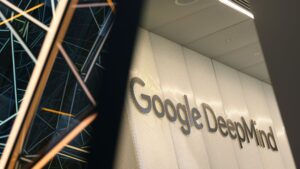DeepMind CEO Foresees AGI Within 5-10 Years, While Acknowledging AI’s Lack of Creativity

Insights from Demis Hassabis on Artificial General Intelligence (AGI)
Understanding AGI and Its Timeline
Demis Hassabis, the CEO of Google DeepMind, recently shared insights about artificial general intelligence (AGI), which refers to AI systems that can perform tasks with human-like cognitive abilities. In an interview on CBS News’ 60 Minutes, Hassabis estimated that we could see AGI within the next five to ten years. This timeline, however, is speculative and reflects the rapid advancements being made in AI technology.
Limitations of Current AI Systems
Despite the progress in AI, Hassabis emphasized that today’s AI lacks consciousness and imagination. He described current systems as aggregators of existing human knowledge rather than creators of new ideas. "They can’t really yet go beyond asking a new novel question or a new hypothesis," he stated. This limitation means that while AI can process and analyze information, it cannot formulate entirely original concepts like humans can.
Future of AI in Neuroscience and Drug Development
Hassabis believes that the potential of AI extends into various fields, notably neuroscience and medicine. He suggested that AI could revolutionize drug development, significantly reducing both the time and cost associated with bringing new medications to market. Traditionally, developing a drug can take about ten years and cost billions. With advancements in AI, these timelines could be shortened to months or even weeks, paving the way for breakthroughs in treating diseases.
Robotics and Humanoid Machines
Looking ahead, Hassabis sees robotics as a critical area for AI development. He predicts that we will soon witness significant advancements in humanoid robots and other types of machines that can understand and interact with their environments. “I think it will have a breakthrough moment in the next couple of years,” he said, pointing to the possibilities of robots being able to perform valuable tasks.
Demis Hassabis: A Brief Background
Demis Hassabis is a prominent figure in the AI field. With a doctorate in neuroscience and education from renowned institutions such as Cambridge, MIT, and Harvard, he co-founded DeepMind, which was acquired by Google in 2014. In 2024, he and his colleague John Jumper were jointly awarded the Nobel Prize in Chemistry for their groundbreaking work with AlphaFold, an AI model that predicts protein structures.
The Rapid Evolution of AI Technology
Hassabis has noted that AI innovation is accelerating at an impressive rate. He remarked, “I think we are on some kind of exponential curve of improvement.” This rapid progress has drawn more attention, resources, and talent into the field, enhancing its pace of development.
The Complexity of AI Learning
Although AI systems have become remarkably advanced, Hassabis pointed out that they often function as "black boxes." This means that while we can theorize about their capabilities, the inner workings of how they learn from data remain somewhat mysterious. “We don’t program that in,” he explained, highlighting that these systems learn in ways akin to human learning. New capabilities can emerge from the training process itself, which poses both exciting possibilities and challenges.
Safety Measures and Ethical Guardrails
Given the potential risks associated with advanced AI systems, Hassabis advocates for establishing safety protocols and ethical guidelines. He believes that these systems should be instilled with value systems and guidance, similar to how a parent teaches a child. This proactive approach can help ensure that AI is aligned with human values and operates safely within defined limits.
By addressing both the opportunities and challenges presented by AI, leaders like Demis Hassabis pave the way for a future where technology can significantly enhance human life while being mindful of its implications.






